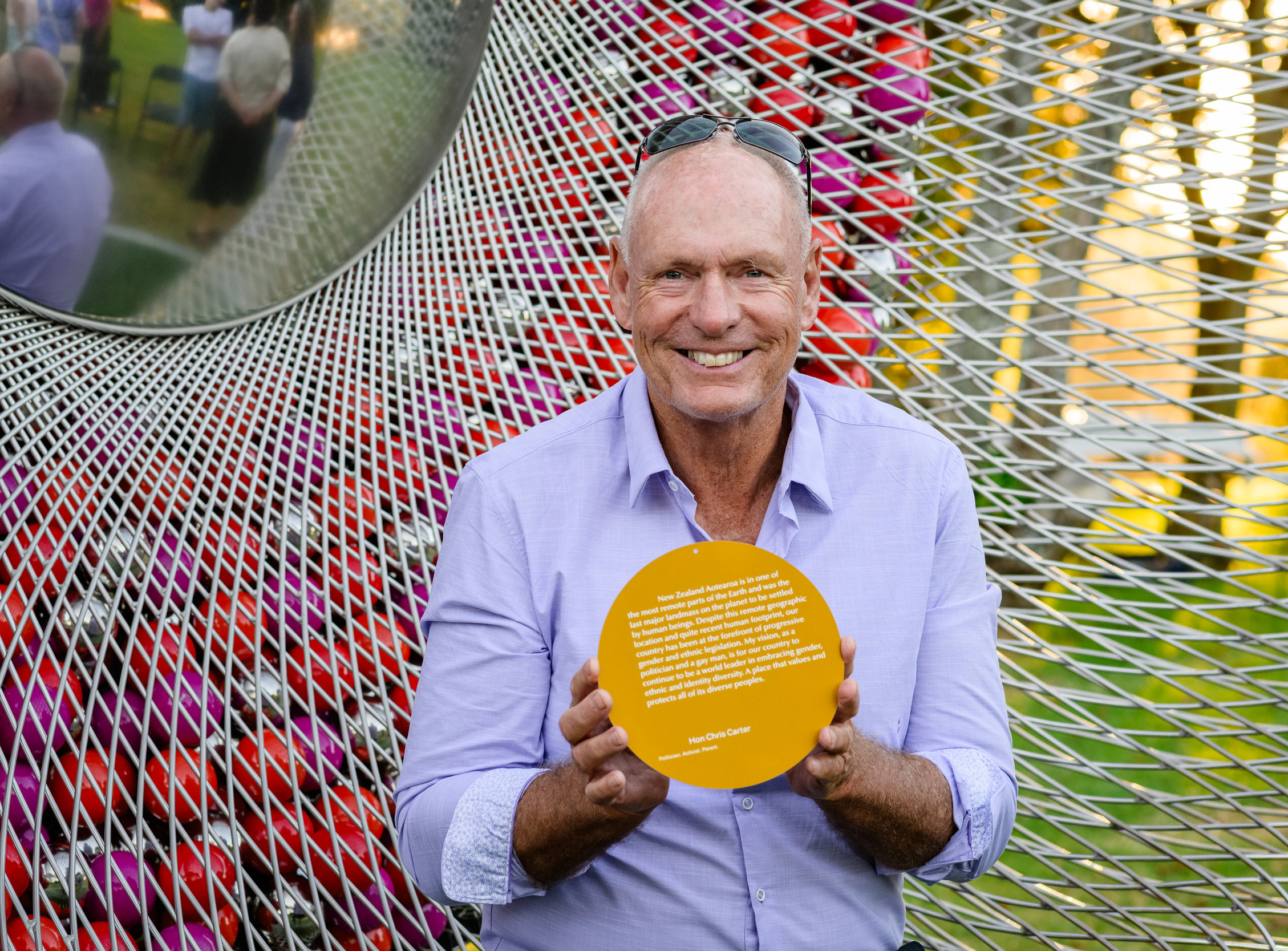Chris Carter
Profile
Commitment to equality and human rights has been a constant thread through Hon Chris Carter’s life and career. Initially qualified as a school teacher, Chris was first elected as a Member of the New Zealand Parliament in 1993. Over the next 18 years, he served in numerous roles, including Minister of Conservation, Minister of Local Government, Minister of Ethnic Affairs and Minister of Education. Chris was the first openly gay MP in Aotearoa New Zealand and continues to be a vocal advocate for the LGBTQI+ community.
After leaving Parliament in 2011, Chris worked for the United Nations, serving 4 years based in Afghanistan and another 4 years in Myanmar. He is currently Chairperson of the Henderson Massey Local Board, part of Auckland Council.
Chris lives with his husband Peter Kaiser. They have three adult children and three grandchildren.

Insight
Chris Carter’s words are inspired by two key life events. The first being in 1993, when he became the first openly gay Member of Parliament in Aotearoa New Zealand. The second, in 2002 when he was appointed as Minister of Conservation, a portfolio he held for 5 years. He regards the environmental achievements that he managed during his time as Conservation Minister as his most significant contribution to New Zealand.
Weaving together these two elements, Chris’ statement presents us with a vision for an Aotearoa that equally values and respects human diversity and environmental uniqueness. This statement also cleverly plays with the tension between New Zealand being on the edge of the globe and being at the cutting edge of progressive social change. Perhaps it is because of, rather than in spite of our geographical remoteness, that Aotearoa New Zealand has been able to maintain a progressive position on equality and human rights.
Te Reo Glossary
Te Reo Glossary
ākonga
student, pupil
alofa
love, affection (Cook Islands Māori language)
Aotearoa
New Zealand
aroha
love, affection
haere rā
goodbye, farewell
hapū
subtribe, part of a kinship group
ira tangata
term used for intersex in a Māori context
irawhiti
term used for transgender in a Māori context
Itāria
Italy
iwi
extended kinship group descended from a common ancestor and associated with a distinct territory in Aotearoa
kairangahau
researcher
kaitiaki
guardian
kaitiakitanga
guardianship, stewardship
kia kaha ngā wāhine toa
be strong woman warriors
kia ora
hello, greetings
kia orana
hello, greetings (Cook Islands Māori language)
kōrero
conversation, discussion
kuia
female elder
mahi
work
māmā
mother, mum
mana
status, prestige, authority,
Māngere
a major suburb in South Auckland, New Zealand
Māori
Indigenous people of Aotearoa New Zealand
mauri
life force, life principle
moana
ocean, sea
Ōtautahi
Christchurch, city in South Island, New Zealand
Ōtepoti
Dunedin, city in South Island, New Zealand
pākeha
New Zealander of European/foreign descent
peka
branch (of a tree, river, organisation)
Pōneke
Wellington, Capital of New Zealand
rangatahi
youth, young people
takatāpui
queer, gay, rainbow community
Tāmaki Makaurau
Auckland, city in North Island, New Zealand
tapu
sacred, prohibited
tautoko
to support, advocate
Te Kāhui Tika Tangata
Human Rights Commission, New Zealand
Te Kaunihera Wahine o Aotearoa
National Council of Women of New Zealand
Te Kotahitanga
Autonomous Māori Parliament from 1892 to 1902
Te Moana-Nui-ā-Kiwa
the Pacific Ocean
te reo
the Māori language
Te Ropu Wahine Maori Toko i te Ora
Māori Women’s Welfare League
Te Wāhi Wāhine o Tāmaki Makaurau
Auckland Women’s Centre
tikanga
protocol, correct procedure
wāhine
woman, women
wāhine kaha
strong woman/women
waiata
song, chant
waiata taitoko
song of support usually sung after a speech
wairua
spirit, soul
whakapapa
genealogy, lineage
whānau
family, extended family group
whare
house, building